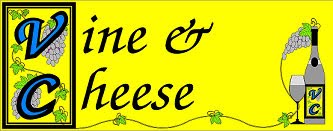I don't know how this happened but in recent months we have evolved into quite the vendor for South African wines. Presently we have eight types in the store, four reds and four whites. Last month we may have sold thirty cases of these which is pretty impressive considering South African wines usually don't do that well.
In the wine business Europe is considered to be the "old world" and everywhere else is considered "new world." Most new world wine industries are a hundred years old or so. South Africa has a wine industry that is three hundred fifty years old. Many of their critically acclaimed wines are second in quality only to Europe.
Most of the South African wine industry is located in the Western Cape, the region surrounding Cape Town in the southwestern corner of the continent. At thirty-three degrees latitude this wine country mirrors Mendoza, Argentina where the finest Malbec is made. The prize wine of South Africa is Pinotage, a hybrid of Cinsault and Pinot Noir. While Pinotage may be the signature wine of South Africa something in its flavor profile doesn't gibe with the international palate. South African Cabernet Sauvignon and Rhone-style blends are safer bets for most of us. Chenin Blanc, Sauvignon Blanc and Chardonnay are the winners in white wine.
Our thirty cases sold in December was heavily weighted toward the KWV whites we loaded up on when the price was right. Considering the quality of the wines, that store purchase proved to be the ultimate no-brainer. If anything, our $10 retail was too low, scaring off many who might have liked the wines but weren't inclined to buy such low-priced fare.
At the turn of the last century South Africa had a serious wine overproduction problem. The phyloxera bug had decimated South African vineyards like everywhere else. When they replanted they overdid it resulting in way too much wine for a nation that was not an exporter at that time.
KWV was a farming cooperative established in 1918. In 1924 the government passed the KWV Act which made the co-op responsible for administering the wine industry. By putting KWV in charge the government hoped for a unity of purpose among producers leading to innovation and quality improvement. The development of export markets would then hopefully follow.
Upon establishment of its authority in 1924 KWV corrected the overproduction imbalance by purchasing excess wine from growers and fermenting it into brandy then marketing it around the world. The KWV Act made the co-op the sole importer/exporter of all alcoholic beverages. Initially 70% of vineyard production was distilled with just 30% remaining as table wine. Today those percentages are reversed.
Twentieth century South Africa is noteworthy for most of us for one primary reason: Apartheid. Most of the industrialize First World boycotted South Africa because of its legally discriminatory political system. Once reforms took place in the late 1980's the wine industry itself was reformed. To be more inclusive KWV was privatized and black ownership in the industry was mandated.
Please join us this Thursday after 5pm for the weekly wine tasting.
Tuesday, January 28, 2020
Subscribe to:
Post Comments (Atom)




No comments:
Post a Comment